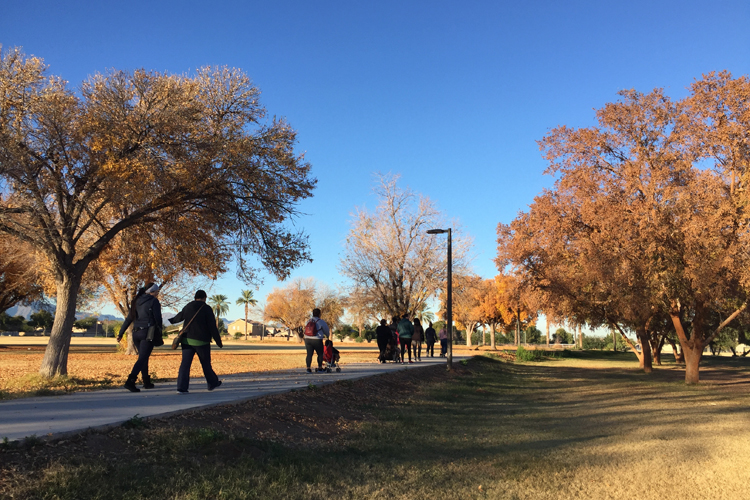
Innovative Projects to Improve Community Health Across the State
PHOENIX (April 22, 2019) —Vitalyst Health Foundation has partnered with the Arizona Community Foundation, the Community Foundation for Southern Arizona and The NARBHA Institute to award Innovation Grants totaling $564,700 to four Arizona projects. These grants will help build healthy communities around the state.
“Vitalyst’s Innovation Grants are awarded each year to support projects that use breakthrough approaches to address community issues,” said Suzanne Pfister, president and CEO of Vitalyst Health Foundation. “Each of our grant-funded partners has shown a thoughtful approach to improving community health by working with a broad coalition of partners to impact the root causes of health.”
2019 Innovation Grants were awarded to the following Arizona projects:
Ajo Center for Sustainable Agriculture received a $140,000 grant in partnership with the Community Foundation for Southern Arizona to support agricultural apprenticeships and a statewide campaign to pass legislation supporting young and beginning farmers, ranchers, foragers and gleaners at the state level. Ajo Center for Sustainable Agriculture, in partnership with Southern Arizona Young Farmers Coalition, Tohono O’odham Community Action, Iskashitaa Refugee Network, Local First Arizona, and Southern Gila County Development Corporation, will raise general awareness of characteristics and challenges of Arizona’s agriculture, as well as develop a shared system for administering farmer apprenticeships. This will include determining qualifications for farmers and organizations to host apprentices, and qualifications for those applying, to lay the groundwork for a successful workforce development program.
Hushabye Nursery received a $155,000 grant in partnership with Arizona Community Foundation for a program that will help change the perception and treatment of expectant mothers with opioid use disorder. Hushabye Nursery has partnered with Dignity Health, Southwest Human Development, Phoenix Children’s Hospital, and Maricopa Integrated Health Services. Currently, these women are often treated as criminals and do not receive the treatment they need. After the completion of the two-year period supported by Vitalyst, Hushabye Nursery expects provider partners to incorporate the new practice in their standard operating procedures and protocols for care, helping to improve health outcomes for both mothers and babies.
Arizona Community Tree Council, Inc. received a grant for $124,700 to implement Park Rx which will encourage doctors and other care providers in two Phoenix communities to prescribe park time to patients and support park improvements – such as trees and benches to provide shade and seating – that have been identified by the community, as well as make recommendations to reduce barriers and improve access to the park. Partners include: Maricopa County Department of Public Health; HonorHealth; I.G. Conchos Elementary School; City of Phoenix Departments of Parks & Recreation, Street Transportation, and Neighborhood Services; Arizona Department of Forestry & Fire Management; The Nature Conservancy; and Keep Phoenix Beautiful. Park Rx encourages environmental and medical care systems change that supports active living with improved physical and mental health and community cohesion.
Flagstaff Shelter Services received a $145,000 grant in partnership with The NARBHA Institute to help improve health and housing outcomes among people experiencing homelessness. Culturally sensitive Housing-focused Care Teams (HCTs) are comprised of a Flagstaff Shelter Services Housing case manager, a North Country Healthcare primary care provider, and a behavioral health provider from The Guidance Center or Southwest Behavioral & Health Services. HCTs will stabilize acute physical and behavioral health needs and quickly connect individuals and families experiencing homelessness with permanent housing that they have the ability to maintain.


